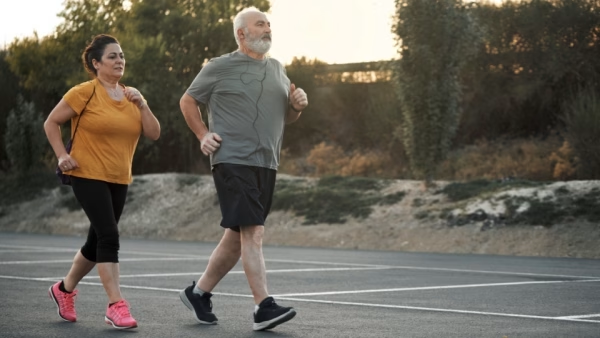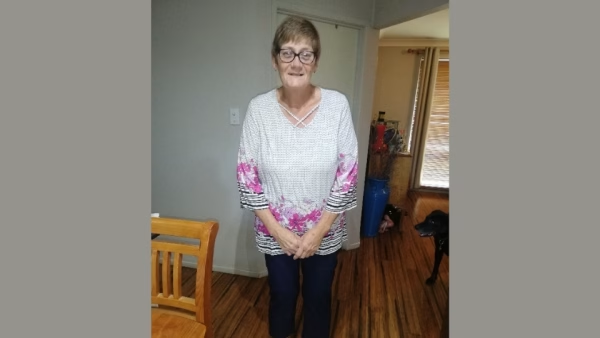How a weight check can save your life
Losing weight is an important step towards a healthy future


Being a healthy weight has a range of great benefits, from being able to enjoy exercise without dealing with painful joints to playing with your kids (or grandkids) without struggling to take a breath.
And when you’re ready to lose the extra weight, we’re here to get you started.
First things first; it’s important to know that you’re not alone. Since the mid-90s, the number of overweight and obese Australian adults has increased from 19% to 31%. Roughly two-thirds of adults are overweight or obese as are a quarter of children.
Losing weight requires a rock-solid commitment that can challenge even the most determined of us. But the hard work is worth it. Step one is to check in with your doctor for personalised advice about your weight loss goals.
What’s a weight check and who performs it?
During a weight check, your doctor will calculate your body mass index (BMI) by dividing your weight (in kilograms) by your height (in metres squared). A healthy BMI falls between 18.5 and 24.9. A BMI between 25 and 29.9 is considered overweight, and a BMI of 30 and over is obese.
Your doctor may also assess your weight by measuring your waist circumference. A healthy waist measurement should be less than 80 cm in women and below 94 cm for men. A large waist circumference is associated with excessive visceral fat, a type of fat that’s stored within your abdominal cavity and surrounds a number of your internal organs.
There are many ways to measure body mass. Speak with a doctor to determine your best option.
Related: Understanding visceral fat

I’m overweight. What can I do?
Physical activity and a healthy diet are essential to losing weight.
The Department of Health says adults should accumulate 1.25 to 2.5 hours of vigorous activity each week. Children should do at least an hour of exercise every day.
Activities could include brisk walking, swimming, dancing, running or fast cycling. It’s also vital to incorporate muscle-building exercises into your weekly activity as these exercises promote good posture, mobility, balance, and boosts your metabolism.
The Australian Dietary Guidelines lay out general principles for anyone looking to eat a healthy, balanced diet. However, if you are struggling to lose weight, you may need to seek the help of a nutritionist, dietitian or speak to your doctor for a targeted approach.
Related: Aerobic exercises to improve your health
How does my weight impact my overall health?
If you’re overweight or obese, choosing to lose weight is an important step towards a healthy future. Carrying excess kilos can affect your physical and mental health and lead to a poorer quality of life, but there are things you can do to reverse or prevent harm. Here are just a few conditions associated with excess body fat:
1. Bone and joint damage
Excess body weight increases pressure on your joints and bones. Over time, the cartilage in your joints wears down and can lead to pain and difficulty walking.
2. Diabetes
What you eat and drink throughout your day and how active you are affects your risk of developing Type 2 diabetes.
3. Heart disease
Excess fat contributes to cardiovascular (heart) disease through thickening the heart’s walls and the build-up of arterial fat. Additionally, other conditions associated with being overweight or obese, such as diabetes and hypertension, increase heart disease risk.
4. Respiratory disorders
The amount of effort required from your respiratory muscles increases when excess weight accumulates on your chest and abdomen. A build-up of fat tissue in your abdominal wall and around your organs reduces your lungs’ and diaphragm’s ability to expand and contract.
5. Depression
The stigma associated with being overweight or obese can lead to poor self-image, low self-esteem, and social isolation, all of which can contribute to depression.
6. Cancer
Being overweight or obese has been linked to various forms of cancer, including breast, liver, pancreatic, colon, kidney, and gallbladder.
‘I lost 26kg and no longer need my knee operation’
Staying active and eating a balanced diet is easier said than done. This is where nib’s Healthy Weight For Life program comes in handy. Personalised eating and activity plans and online support and education can help you stay on track with your health goals and avoid unnecessary hospital treatment.
Mother of two and hardware store employee, Kerry Kenny, was close to needing a total knee replacement when her surgeon recommended nib’s Healthy Weight for Life program.
Since starting the program, Kerry was able to make critical changes to her lifestyle and diet.

“I was overweight because of portion size and making the wrong food choices. And because I’ve had sore knees, I would avoid walking, so I ballooned more or less.
“But the program has worked for me. It’s changed the way I think about food and exercise.
“You start off with gentle exercise and work your way up. I’ve been doing aqua aerobics and I’m stretching every day. Once the weight starts coming off – immediately I lost two to three kilos – then it motivates you to keep going.
“I’ve lost 26kg. I feel better in myself and I’m pain-free. I’m happier, and family-wise I’m a happy wife and mother. I’m not just frumping around. It’s also improved my work life. I’m much more agile.”
Start your weight loss journey today
We understand that the discomfort of knee and hip osteoarthritis can be excruciating, so we offer the Healthy Weight For Life Program – aimed to help you better manage your joint pain from the comfort of your own home. The program, which is available to eligible nib members at no additional cost*, includes more than $800 worth of meal replacements, a portion control eating plan, an activity plan with strength, balance and mobility exercises and ongoing support to help you maintain a healthy weight.
Visit our Health Management Programs page for more information.
Has it been a while since your last check-up?
It might be time to book an appointment with a GP. Our Find a Provider service allows you to search for health professionals like GPs in your local area.
If you’re heading to your GP for a check-up, it could be a good opportunity to find out what other examinations you might be due for.
If you’re aged between 20-29, find out more with our article Health checks in your 20s.
If you’re aged between 30-39, we’ve put together a list of Health checks in your 30s.
Aged 40-49? There’s a dedicated article on The Check Up, Health checks in your 40s.
And, for the young-at-hearters (or those of us between 50-59), check out Health checks in your 50s.
*Available to eligible nib members who’ve held Hospital Cover for 12 months and served their relevant waiting periods. Additional criteria vary according to each program.
How a heart health check can save your life
Most heart attacks and strokes are preventable
Health checks in your 70s
Find out about the health checks you need in your 70s
Health checks in your 60s
Find out about the health checks you need in your 60s and more.




